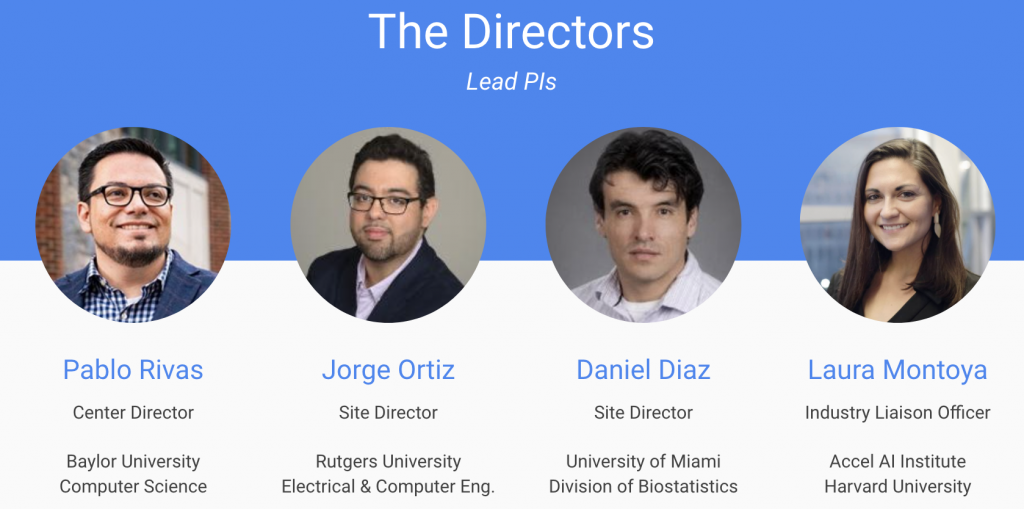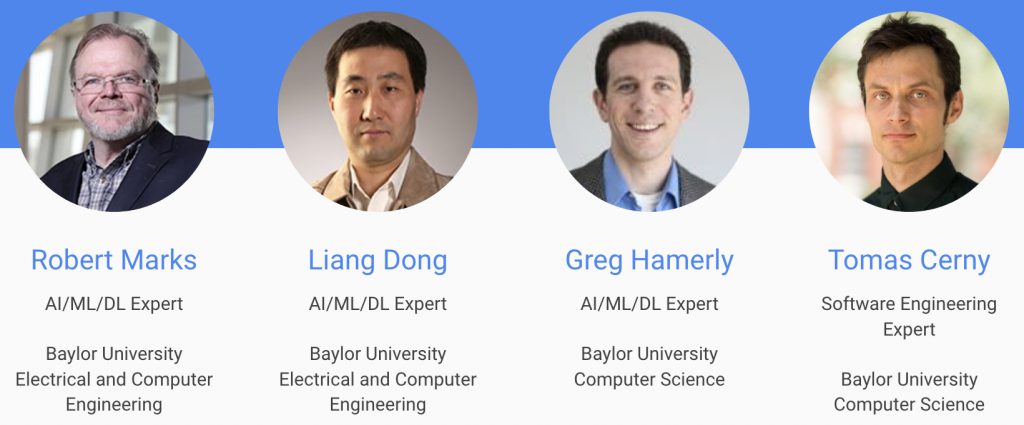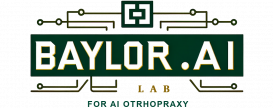IUCRC Planning Grant

Baylor University has been awarded an Industry-University Cooperative Research Centers planning grant led by Principal Investigator Dr. Pablo Rivas.
The last twenty years have seen an unprecedented growth of AI-enabled technologies in practically every industry. More recently, an emphasis has been placed on ensuring industry and government agencies that use or produce AI-enabled technology have a social responsibility to protect consumers and increase trustworthiness in products and services. As a result, regulatory groups are producing standards for artificial intelligence (AI) ethics worldwide. The Center for Standards and Ethics in Artificial Intelligence (CSEAI) aims to provide industry and government the necessary resources for adopting and efficiently implementing standards and ethical practices in AI through research, outreach, and education.
CSEAI’s mission is to work closely with industry and government research partners to study AI protocols, procedures, and technologies that enable the design, implementation, and adoption of safe, effective, and ethical AI standards. The varied AI skillsets of CSEAI faculty enable the center to address various fundamental research challenges associated with the responsible, equitable, traceable, reliable, and governable development of AI-fueled technologies. The site at Baylor University supports research areas that include bias mitigation through variational deep learning; assessment of products’ sensitivity to AI-guided adversarial attacks; and fairness evaluation metrics.
The CSEAI will help industry and government organizations that use or produce AI technology to provide standardized, ethical products safe for consumers and users, helping the public regain trust and confidence in AI technology. The center will recruit, train, and mentor undergraduates, graduate students, and postdocs from diverse backgrounds, motivating them to pursue careers in AI ethics and producing a diverse workforce trained in standardized and ethical AI. The center will release specific ethics assessment tools, and AI best practices will be licensed or made available to various stakeholders through publications, conference presentations, and the CSEAI summer school.
Both a publicly accessible repository and a secured members-only repository (comprising meeting materials, workshop information, research topics and details, publications, etc.) will be maintained either on-site at Baylor University and/or on a government/DoD-approved cloud service. A single public and secured repository will be used for CSEAI, where permissible, to facilitate continuity of efforts and information between the different sites. This repository will be accessible at a publicly listed URL at Baylor University, https://cseai.center, for the lifetime of the center and moved to an archiving service once no longer maintained.
Lead Institutions

The CSEAI is partnering with Rutgers University, directed by Dr. Jorge Ortiz, and the University of Miami, directed by Dr. Daniel Diaz. The Industry Liaison Officer is Laura Montoya, a well-known industry leader, AI ethics advocate, and entrepreneur.
The three institutions account for a large number of skills that form a unique center that functions as a whole. Every faculty member at every institution brings a unique perspective to the CSEAI.
Baylor Co-PIs: Academic Leadership Team

The Lead site at Baylor is composed of four faculty that serve at different levels, having Dr. Robert Marks as the faculty lead in the Academic Leadership Team, working closely with PI Rivas in project execution and research strategic planning. Dr. Greg Hamerly and Dr. Liang Dong strengthen and diversify the general ML research and application areas, while Dr. Tomas Cerny expands research capability to the software engineering realm.
Collaborators

Dr. Pamela Harper from Marist College has been a long-lasting collaborator of PI Rivas in matters of business and management ethics and is a collaborator of the CSEAI in those areas. On the other hand, Patricia Shaw is a lawyer and an international advisor on tech ethics policy, governance, and regulation. She works with PI Rivas in developing the AI Ethics Standard IEEE P7003 (algorithmic bias).
Workforce Development Plan
The CSEAI is planning to develop the workforce in many different avenues that include both undergraduate and graduate student research mentoring as well as industry professionals continuing education through specialized training and ad-hoc certificates.

